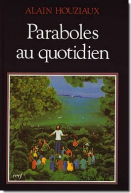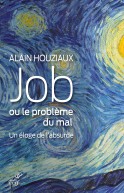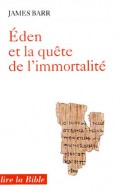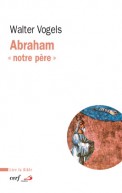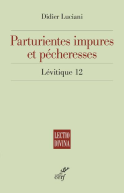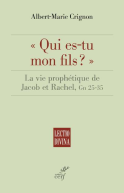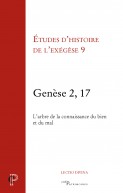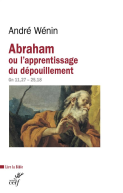Le mythe d'Adam et Ève
Collection Lire la Bible - N° 179
210 pages - août 2013
15,40€
Tout le monde connaît le mythe d’Adam et Ève : deux bonnes poires, un serpent, une pomme... à l’origine de gros pépins. Ce récit reste pourtant bien énigmatique : pourquoi ce fruit est-il interdit ? Qu’est-ce que cette connaissance du bien et du mal qui, paradoxalement, serait à la source de tous nos maux ? Qui est ce Dieu prohibiteur et castrateur qui chasse ses enfants ? La faute d’Adam et Ève est-elle de nature sexuelle ? On ne peut répondre à ces questions qu’en rapprochant le récit biblique d’autres mythes archaïques. Les mythes sont les « conteurs de l’inconscient » ; ils mettent en scène les désirs, les fantasmes et les inhibitions de l’homme de toujours. Celui d’Adam et Ève révèle la source des tabous et des premières images que les hommes ont de Dieu. La psychanalyse s’invite alors dans l’analyse de ce texte. Le couple mythique illustre le désir de jouissance et son refoulement, la genèse du sentiment de honte et du sens moral, le complexe d’Œdipe et le désir de supplanter le Père. C’est avec audace que l’auteur décide d’allonger Adam et Ève sur le divan et, ainsi, Dieu lui-même !
--
Everyone knows the myth of Adam and Eve: a pair of dupes, a serpent and an apple... the source of all our misfortunes. But this is a distinctly enigmatic tale: why is the fruit forbidden? What is this knowledge of good and evil that, paradoxically, is the source of all our woes? Who is this forbidding and castrating God that casts out his children? Is the fall of Adam and Eve sexual in nature? These questions can only be answered by comparing the Biblical account with other archaic myths - myths that ‘narrate’ the subconscious and have always projected man’s desires, fantasies and inhibitions. That of Adam and Eve reveals the origins of our taboos and presents man’s first images of God. Hence psychoanalysis has a role to play in the analysis of this particular tale. The mythical couple illustrate the desire for pleasure and its repression, the genesis of feelings of shame and a sense of morality, the Oedipus complex and the impulse to supplant the Father. Our author has dared invite Adam and Eve to recline on the psychiatrist’s couch, and through them, God himself!
--
Everyone knows the myth of Adam and Eve: a pair of dupes, a serpent and an apple... the source of all our misfortunes. But this is a distinctly enigmatic tale: why is the fruit forbidden? What is this knowledge of good and evil that, paradoxically, is the source of all our woes? Who is this forbidding and castrating God that casts out his children? Is the fall of Adam and Eve sexual in nature? These questions can only be answered by comparing the Biblical account with other archaic myths - myths that ‘narrate’ the subconscious and have always projected man’s desires, fantasies and inhibitions. That of Adam and Eve reveals the origins of our taboos and presents man’s first images of God. Hence psychoanalysis has a role to play in the analysis of this particular tale. The mythical couple illustrate the desire for pleasure and its repression, the genesis of feelings of shame and a sense of morality, the Oedipus complex and the impulse to supplant the Father. Our author has dared invite Adam and Eve to recline on the psychiatrist’s couch, and through them, God himself!
- Dimensions : 135x215x15
- ISBN : 9782204098212
- Poids : 290 grammes
DU MÊME AUTEUR
> VOIR TOUS LES LIVRES DE l'AUTEUR
DANS LA CATÉGORIE EXÉGÈSE BIBLIQUE
Genèse 2, 17
192 pages - févr. 2016
Abraham ou l'apprentissage du dépouillement (Gn 11, 27 - 25, 18)
d' André Wénin
448 pages - oct. 2016



